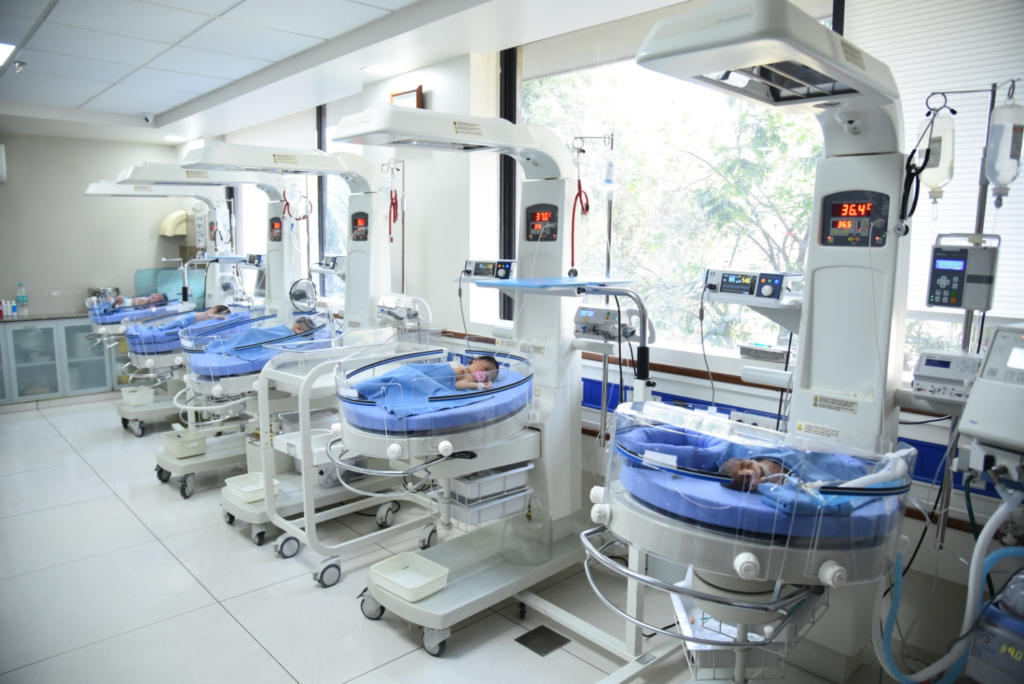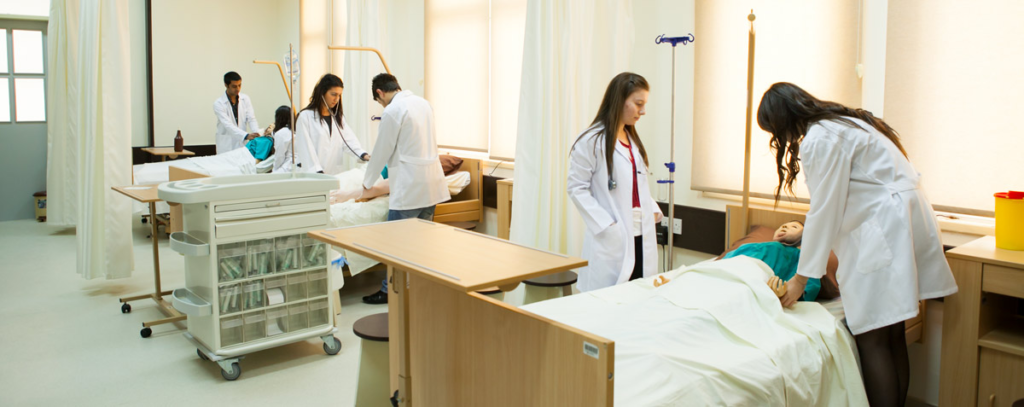GDA Nursing Class Notes 15
c. Operation theatre: An operation theatre, also known as an operating room (OR) or surgery suite, is a specialized medical facility where surgical procedures are performed on patients. It is a highly controlled and sterile environment designed to ensure the safety and success of surgical procedures. The design and setup of operation theatres may vary based on the specific hospital or medical facility, the type of surgeries performed, and technological advancements. The primary goal is to provide a controlled environment that maximizes patient safety and enhances the surgical team’s ability to perform procedures effectively.

d. Cardiology department: A cardiology department is a specialized medical facility within a hospital or healthcare institution that focuses on the diagnosis, treatment, and management of cardiovascular diseases and disorders. Cardiology is a branch of medicine that deals with the heart and the circulatory system. The cardiology department plays a crucial role in preventing, diagnosing, and treating a wide range of heart-related conditions.

e. Geriatric department: A geriatric department, also known as a geriatric medicine or geriatrics department, is a specialized medical facility within a hospital or healthcare institution that focuses on the care and management of older adults, typically those aged 65 and older. Geriatrics is a medical specialty that addresses the unique healthcare needs and challenges faced by elderly individuals. The geriatric department provides comprehensive care to promote healthy aging, manage age-related conditions, and enhance the quality of life for older adults.

f. Gynecology department: A gynecology department is a specialized medical facility within a hospital or healthcare institution that focuses on women’s reproductive health and well-being. Gynecology is a branch of medicine that deals with the female reproductive system, including the diagnosis, treatment, and prevention of conditions related to the reproductive organs. The gynecology department offers a wide range of services to address women’s health needs at various stages of life.

g. Maternity department: A maternity department, also known as a labor and delivery department or maternity ward, is a specialized area within a hospital or healthcare institution that focuses on providing care to pregnant women before, during, and after childbirth. The maternity department is designed to ensure a safe and supportive environment for expectant mothers and their newborns. It offers a range of services to guide women through pregnancy, labor, delivery, and the postpartum period.

h. Neonatal Intensive Care Unit: The Neonatal Intensive Care Unit (NICU) is a specialized medical unit within a hospital that provides intensive medical care to newborn infants, particularly those who are premature, have low birth weights, or have medical conditions that require specialized attention and treatment. The NICU is equipped with advanced medical equipment and a highly skilled medical team to ensure the best possible care for these vulnerable infants.

i. Pediatric department: A pediatric department is a specialized medical facility within a hospital or healthcare institution that focuses on the healthcare needs of infants, children, and adolescents. Pediatricians and a team of healthcare professionals in the department provide medical care, preventive services, and support for children’s physical, emotional, and developmental well-being. The pediatric department covers a wide range of medical specialties tailored to the unique needs of young patients.

j. Oncology department: An oncology department is a specialized medical facility within a hospital or healthcare institution that focuses on the diagnosis, treatment, and management of cancer. Oncology is a branch of medicine that deals with the prevention, diagnosis, and treatment of various types of cancer. The oncology department provides a comprehensive range of services to patients with cancer, including medical, surgical, and radiation oncology.

k. Orthopedic department: An orthopedic department is a specialized medical facility within a hospital or healthcare institution that focuses on the diagnosis, treatment, and management of musculoskeletal conditions and injuries. Orthopedics is a branch of medicine that deals with the bones, joints, muscles, ligaments, tendons, and related structures of the human body. The orthopedic department provides a wide range of services to address orthopedic issues, from fractures and sports injuries to joint replacements and spine surgeries.

l. Neurology department: A neurology department is a specialized medical facility within a hospital or healthcare institution that focuses on the diagnosis, treatment, and management of disorders affecting the nervous system. Neurology is a branch of medicine that deals with the brain, spinal cord, peripheral nerves, and muscles. The neurology department provides a wide range of services to address neurological conditions, from headaches and seizures to complex disorders like stroke, Parkinson’s disease, and multiple sclerosis.

m. Psychiatric department: A psychiatric department is a specialized medical facility within a hospital or healthcare institution that focuses on the diagnosis, treatment, and management of mental health disorders. Psychiatry is a branch of medicine that deals with mental and emotional well-being, including conditions such as depression, anxiety, schizophrenia, bipolar disorder, and more. The psychiatric department provides a range of services to address mental health concerns, promote emotional wellness, and support individuals in need of psychiatric care.

n. Inpatient department: An inpatient department, often referred to as an inpatient unit or ward, is a specialized area within a hospital or healthcare institution where patients receive medical care and treatment while being admitted and staying overnight. Inpatient departments are designed to provide comprehensive care for individuals with acute or serious medical conditions that require close monitoring, specialized treatment, and around-the-clock medical attention.

o. Outpatient department: An outpatient department is a specialized area within a hospital or healthcare institution where patients receive medical care, consultations, and treatments without being admitted for an overnight stay. Outpatient departments cater to individuals who require medical attention, diagnostic tests, consultations with specialists, and minor procedures that do not necessitate extended hospitalization.

2. Nursing department: A nursing department is a crucial component of a hospital or healthcare institution that focuses on providing patient care, coordinating medical treatments, and supporting patients’ physical and emotional well-being. The nursing department is responsible for delivering high-quality and compassionate care to patients, collaborating with other healthcare professionals, and ensuring a safe and comfortable healthcare environment.
The nursing department plays a pivotal role in providing compassionate and skilled care to patients while ensuring a smooth and effective healthcare experience. Nurses are at the forefront of patient care, addressing physical, emotional, and psychological needs, and collaborating with other healthcare professionals to achieve the best possible outcomes for patients.

3. Supportive department: A supportive department, within a hospital or healthcare institution, refers to a group of professionals and services that provide essential support to the primary medical and clinical operations. These departments play a crucial role in ensuring the smooth functioning of the healthcare facility, enhancing patient care, and providing a supportive environment for patients, their families, and the healthcare team.
a. Pharmacy department: The pharmacy department within a hospital or healthcare institution plays a crucial role in managing medications, ensuring safe and appropriate drug administration, and providing pharmaceutical expertise to support patient care. The pharmacy department’s primary goal is to ensure that patients receive safe, effective, and appropriate medications as part of their healthcare treatment. Pharmacists and pharmacy technicians contribute significantly to patient care by preventing medication errors, optimizing drug therapy, and providing valuable pharmaceutical expertise to both healthcare providers and patients.

b. Radiology department: The radiology department, also known as the medical imaging department, is a critical component of a hospital or healthcare institution that specializes in diagnostic imaging techniques to visualize the internal structures of the human body. Radiology plays a vital role in aiding physicians in diagnosing medical conditions, planning treatments, and monitoring the progress of interventions.

c. Pathology department: The pathology department is a critical component of a hospital or healthcare institution that focuses on the diagnosis and study of diseases through the examination of body tissues, fluids, and cells. Pathology plays a crucial role in understanding the nature of diseases, identifying their causes, and providing essential information for treatment planning and patient care.

d. Nutrition and dietetics: The nutrition and dietetics department within a hospital or healthcare institution focuses on providing expert guidance and support in matters related to nutrition, dietary management, and healthy eating. This department plays a crucial role in promoting optimal health, managing medical conditions through diet, and educating patients and healthcare professionals about the importance of nutrition.

e. Housekeeping department: The housekeeping department within a hospital or healthcare institution is responsible for maintaining a clean, safe, and sanitary environment throughout the facility. Housekeeping plays a crucial role in ensuring the comfort and well-being of patients, visitors, and healthcare staff.

4. Administrative department: The administrative department within a hospital or healthcare institution is responsible for managing various operational and organizational functions that ensure the smooth functioning of the facility. This department handles administrative tasks, regulatory compliance, human resources, financial management, and other essential functions that support the overall operations of the healthcare institution.
The administrative department is essential for managing the business side of healthcare operations, supporting clinical care, and ensuring the effective and efficient functioning of the healthcare institution as a whole. It plays a pivotal role in creating a well-organized and patient-centered healthcare environment.

